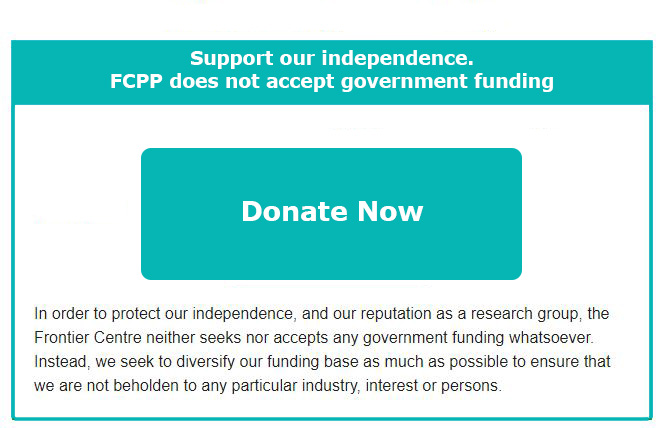The long-suffering citizens of Alberta recently learned that they are on the hook for yet more billions of dollars via an ill-advised “investment” in an oil pipeline that was veritably festooned with red flags prior to the injection of hard-earned and now lost taxpayer funds.
Political risk is one thing that can be hard to quantify, but it is one of the key things that investors, including corporate ones, examine and analyze closely during the decision-making process on a large, impactful investment.
When a long-observed, large infrastructure development with much controversy and legal imbroglios attached to it is in danger of being cancelled by its original proponent, as the Keystone XL pipeline was by TC Energy early last year, it could be a warning signal to others that caution is in order; indeed, that the prudent speculator would best stay away.
Yet, instead, the Alberta government doubled down on exposure to the risks not just of being already highly dependent on the oil and gas industry, but also to how the products of that industry are conveyed to markets beyond its borders. Magnifying such dependence is not the job of a government; one aspect of its role is to actually reduce or mitigate such dependence, via extricating itself from the sector the best it can, or encouraging other parts of the economy to prosper and grow: diversification.
The warning signs were there for years. All pipelines, existing, proposed or repurposed (from gas to oil or vice versa, or reversing the direction of flow), have experienced regulatory permitting problems, environmentalist lawsuits, landowner protests and lawsuits, First Nations blockades and protests, and politicians’ broadsides and threats of cancellation. Such threats were not just manifest, but profuse for this particular project, almost from the get-go.
The project was originally mooted in 2008, and has proceeded in fits and starts ever since. The first route for the right-of-way had to be changed after landowner opposition in the state of Nebraska. Judges granted stays of construction in several instances. Most of the delays and conflicts occurred in the United States, but opposition from climate change groups slowed progress in Canada too. 
Meanwhile, the business case for the project also deteriorated, with the proliferation of other pipeline alternatives, pipeline expansions, and oil-by-rail alternatives adding up to sufficient capacity to handle the estimated increase in Western Canadian oil and bitumen (oilsands output that has not been upgraded to synthetic light oil quality) supply, which is anticipated to top out at about five million barrels per day within five years or so (it is about four to 4.5 million today).
So, given what was already known about the political and sectoral hazards facing Keystone XL last year, it is difficult to understand the analytical and decision-making processes that the Alberta government undertook to buy into the scheme. The ostensible reason was to assure the backers of the line that the government was committed to its completion. However, such a speculative “investment” could never give such an assurance or guarantee. Keystone XL’s fate was in the hands of other actors, such as the Democratic Party of the United States, which was publicly dedicated to stopping it, as were many other independent forces, including the inexorable and uncompromising climate change movement.
Shrewd investors in the financial world are very careful to avoid or hedge politically risky speculative investments in uncertain, contentious, dangerous territories or industries, and generally take a pass entirely. This would have saved Albertans billions of dollars, which could have come in useful in these COVID-ravaged economic times. There is a reason that governments should stay out of business ventures: they are usually bad at them. This is just the latest example.
Ian Madsen is a senior policy analyst with the Frontier Centre for Public Policy.
Photo by Toni Reed on Unsplash.



